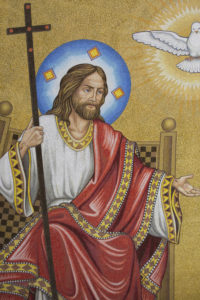By Joseph Pearce, Catholic World Report, February 27, 2025
Joseph Pearce is the author of The Quest for Shakespeare: The Bard of Avon and the Church of Rome and Through Shakespeare’s Eyes: Seeing the Catholic Presence in the Plays, as well as several biographies and works of history and literary criticism. …
If the nightmare scenario of one-size-fits-all globalism is to be avoided, nations must be preserved and protected. And this means that they have to be able to preserve and protect their physical and economic borders.
“We are builders of bridges, not of walls,” said Bishop Giovanni Angelo Becciu, a senior member of the Roman Curia, in January 2017. His words were a reaction to President Trump’s ordering restrictions on immigration during the present incumbent’s first term of office.
The best way to respond to Bishop Becciu’s words would be to remind him of the social teaching of the Catholic Church and especially the teaching of subsidiarity. The Church’s teaching on subsidiarity, as iterated and reiterated in papal encyclicals by Leo XIII, Pius XI and John Paul II, is that matters ought to be handled at multiple appropriate levels of organization and should not be devolved to large central governments. The Church teaches that political decisions should be taken at a local level if possible, rather than by a central authority. The Oxford English Dictionary defines subsidiarity as the idea that a central authority should have a subsidiary function, performing only those tasks which cannot be performed effectively at a more immediate or local level. …
Continue reading >>>>>>>>>>>







